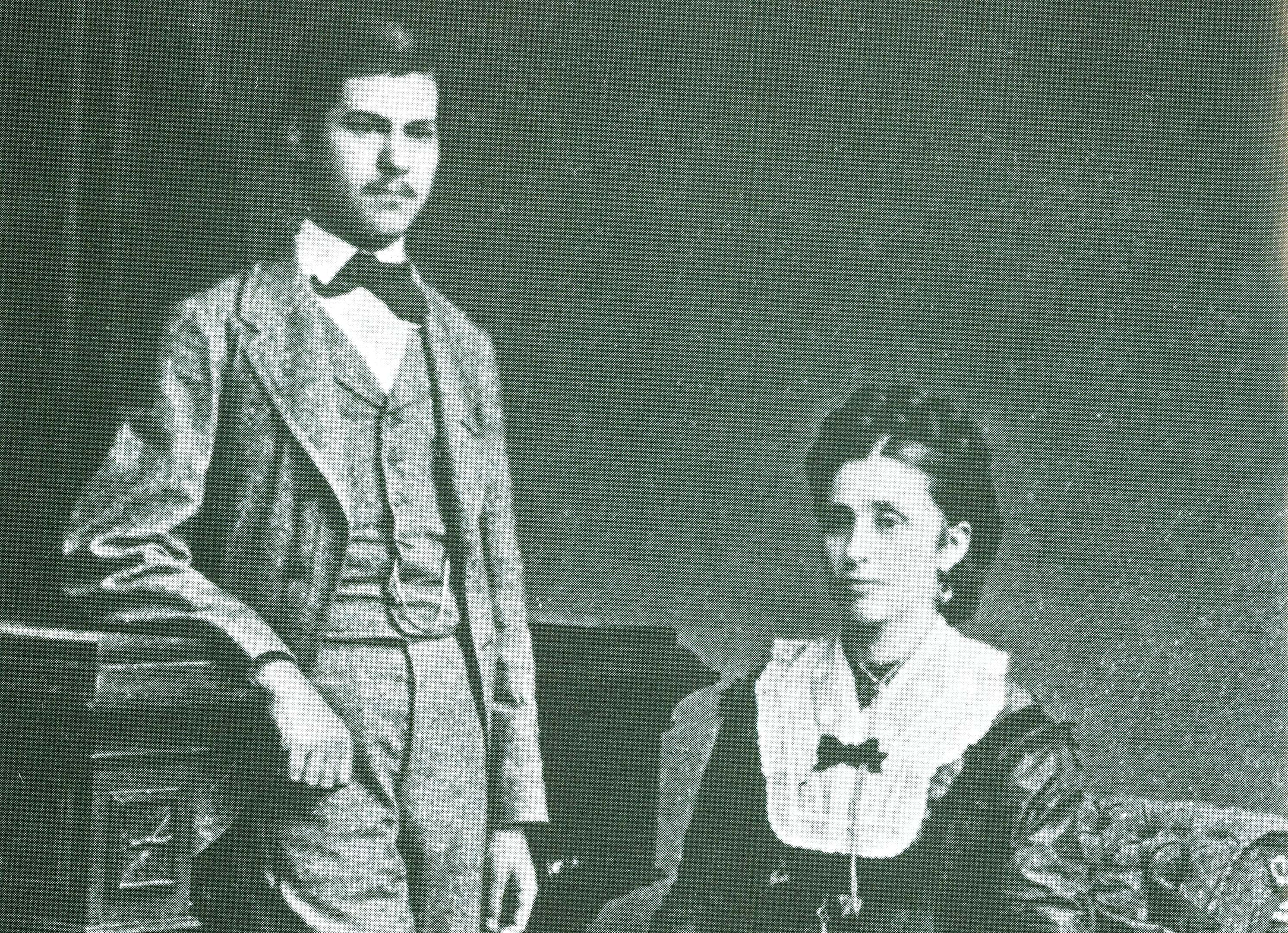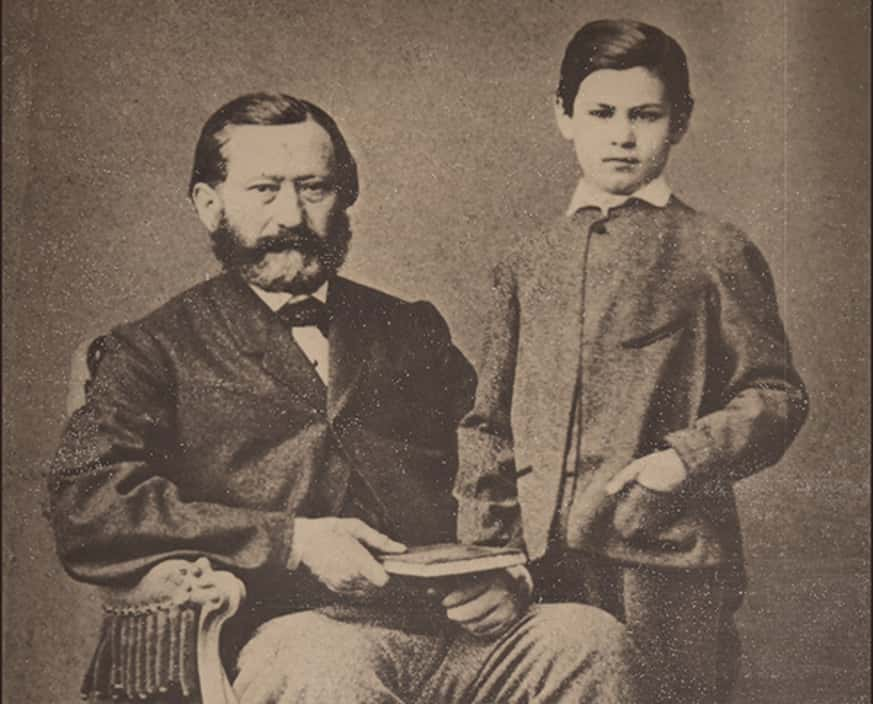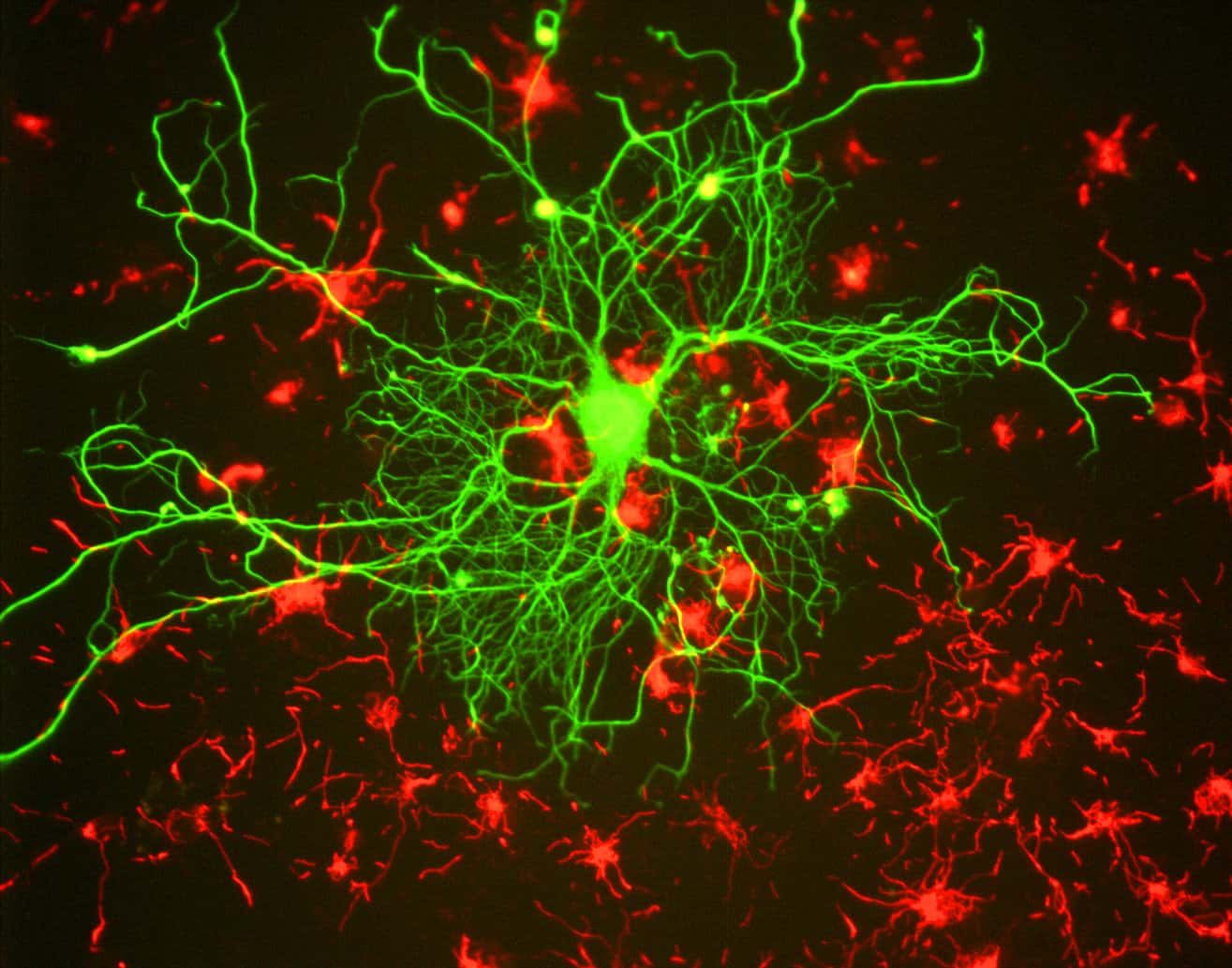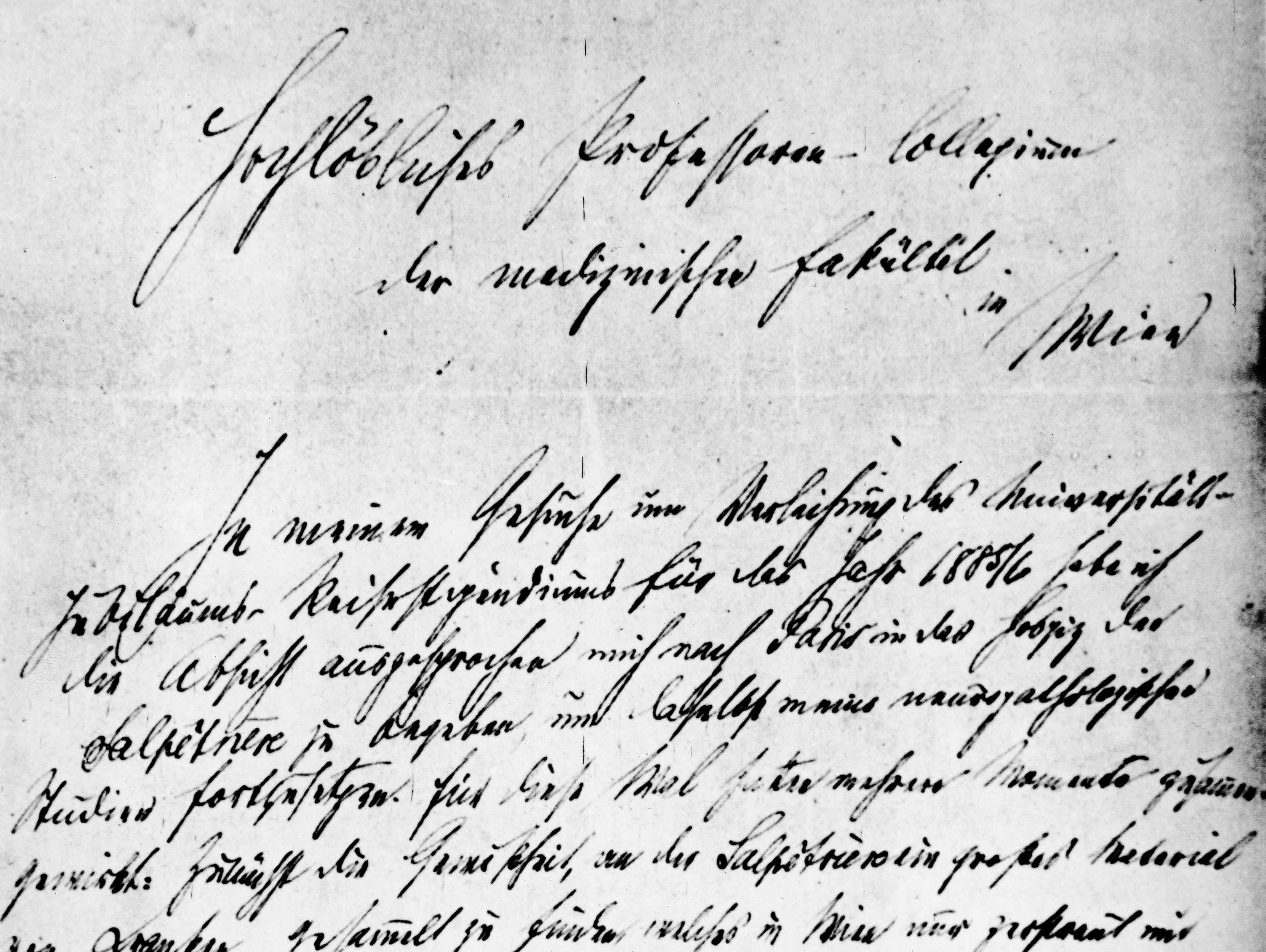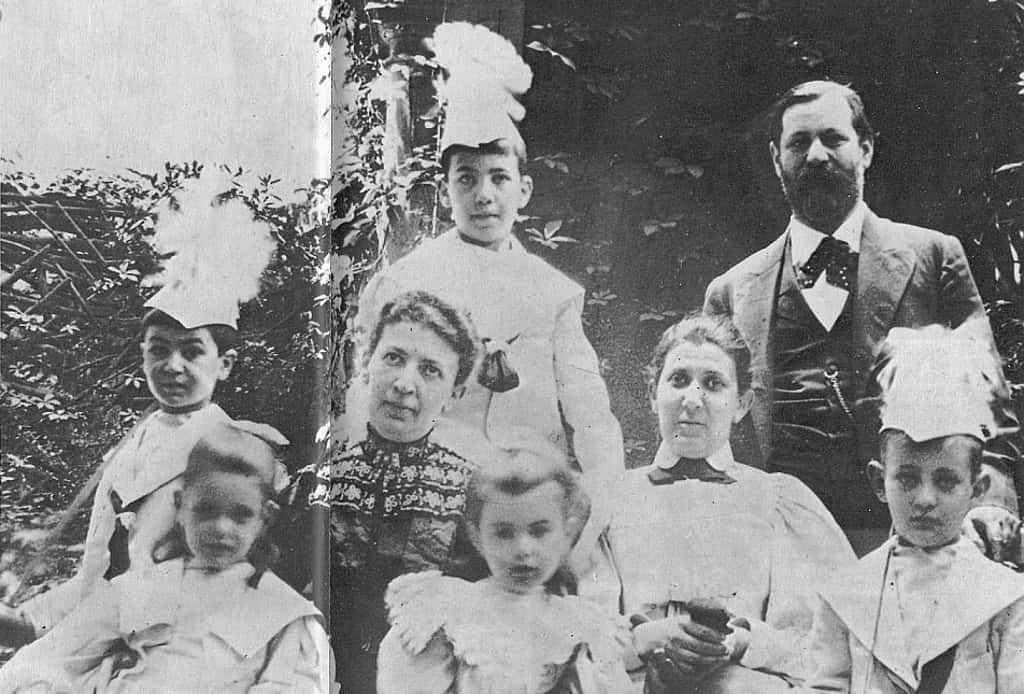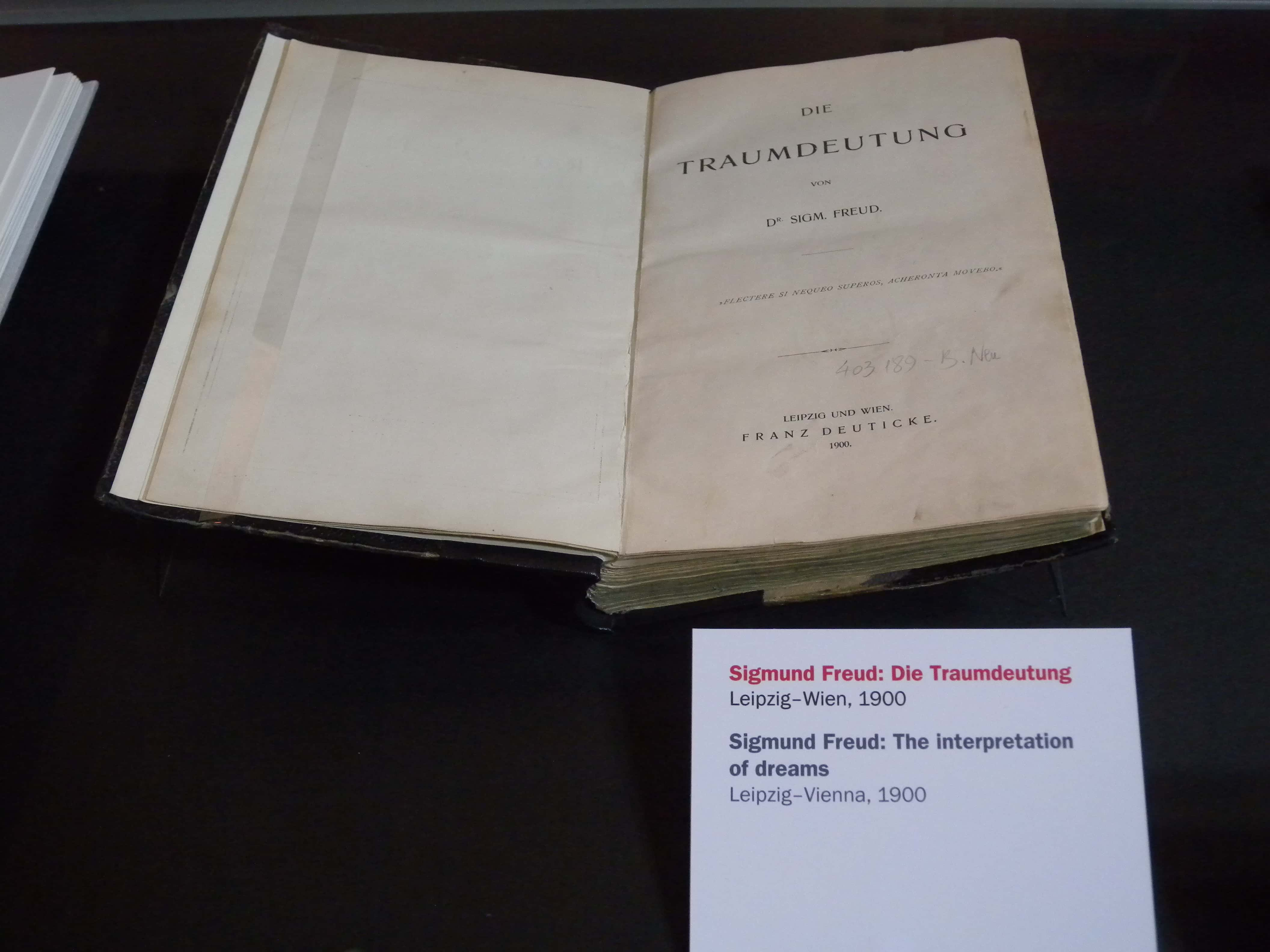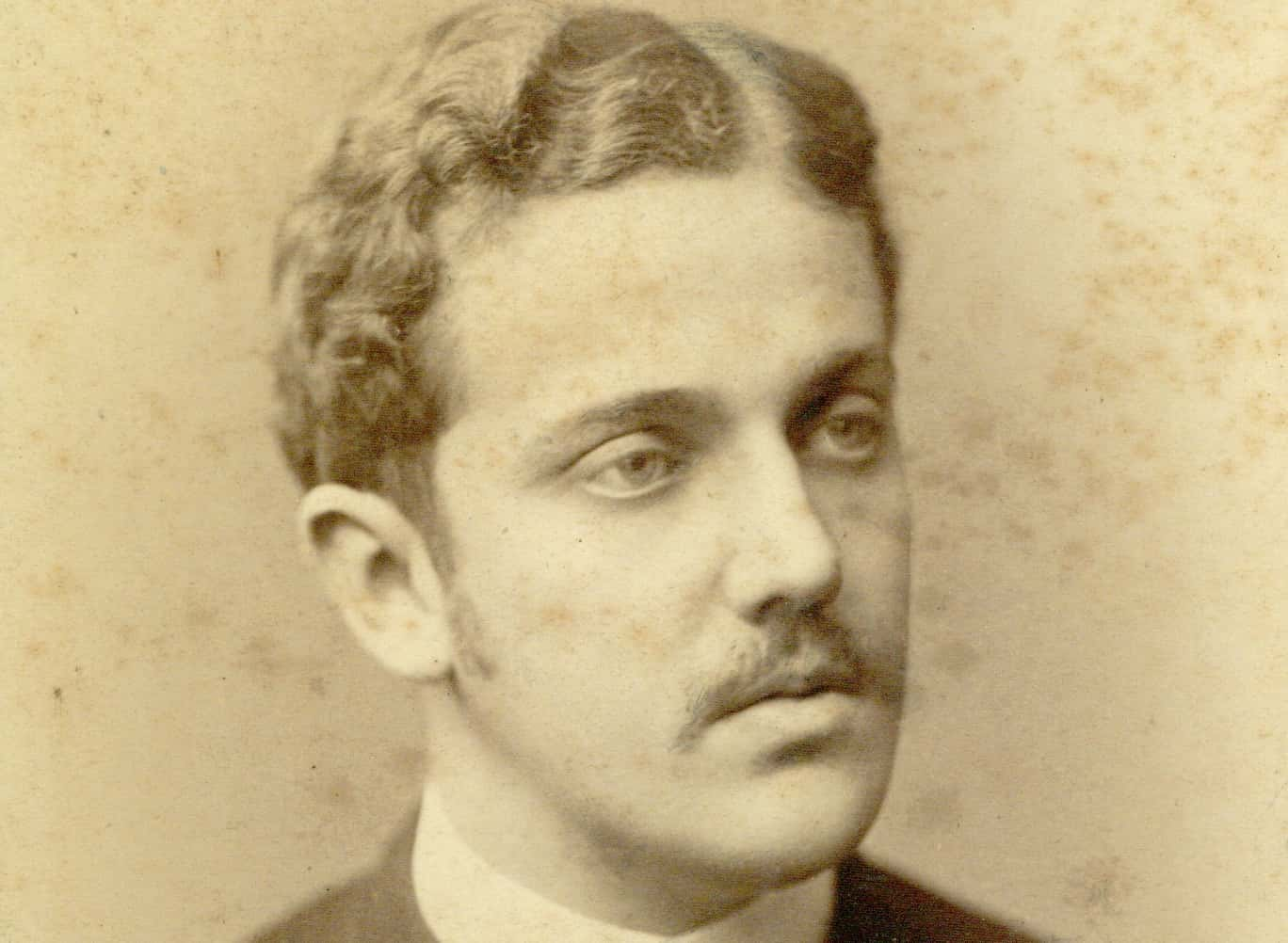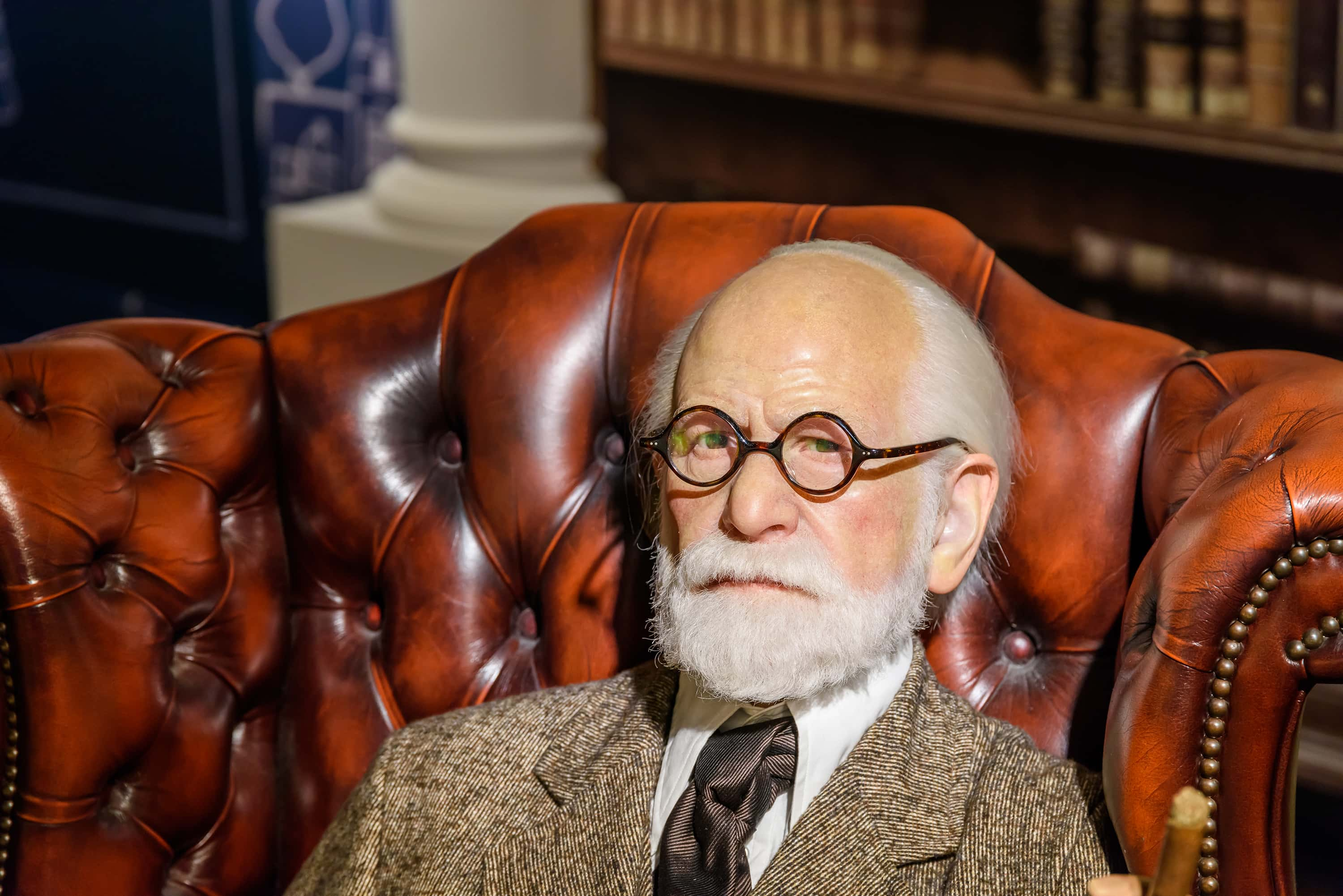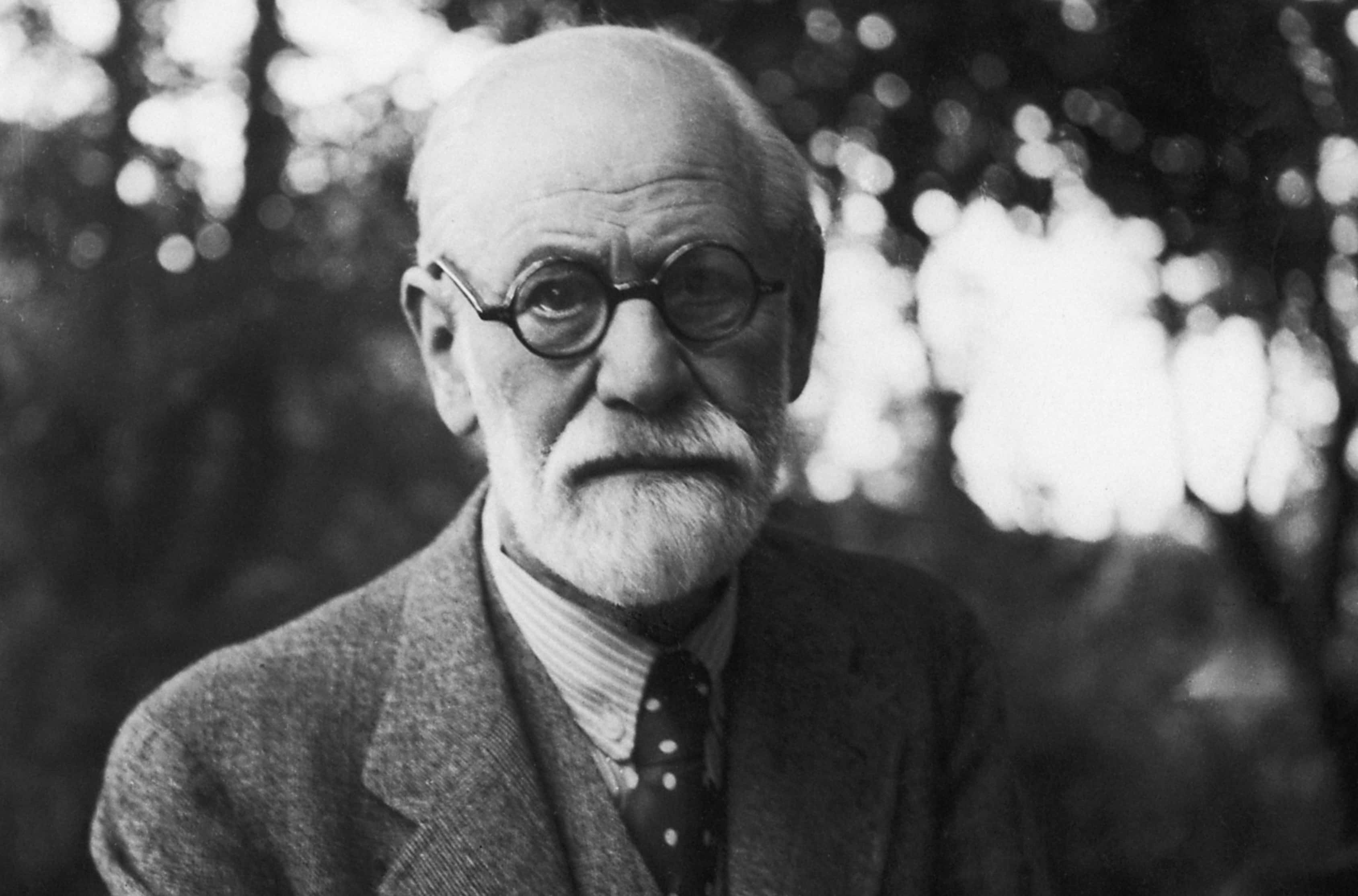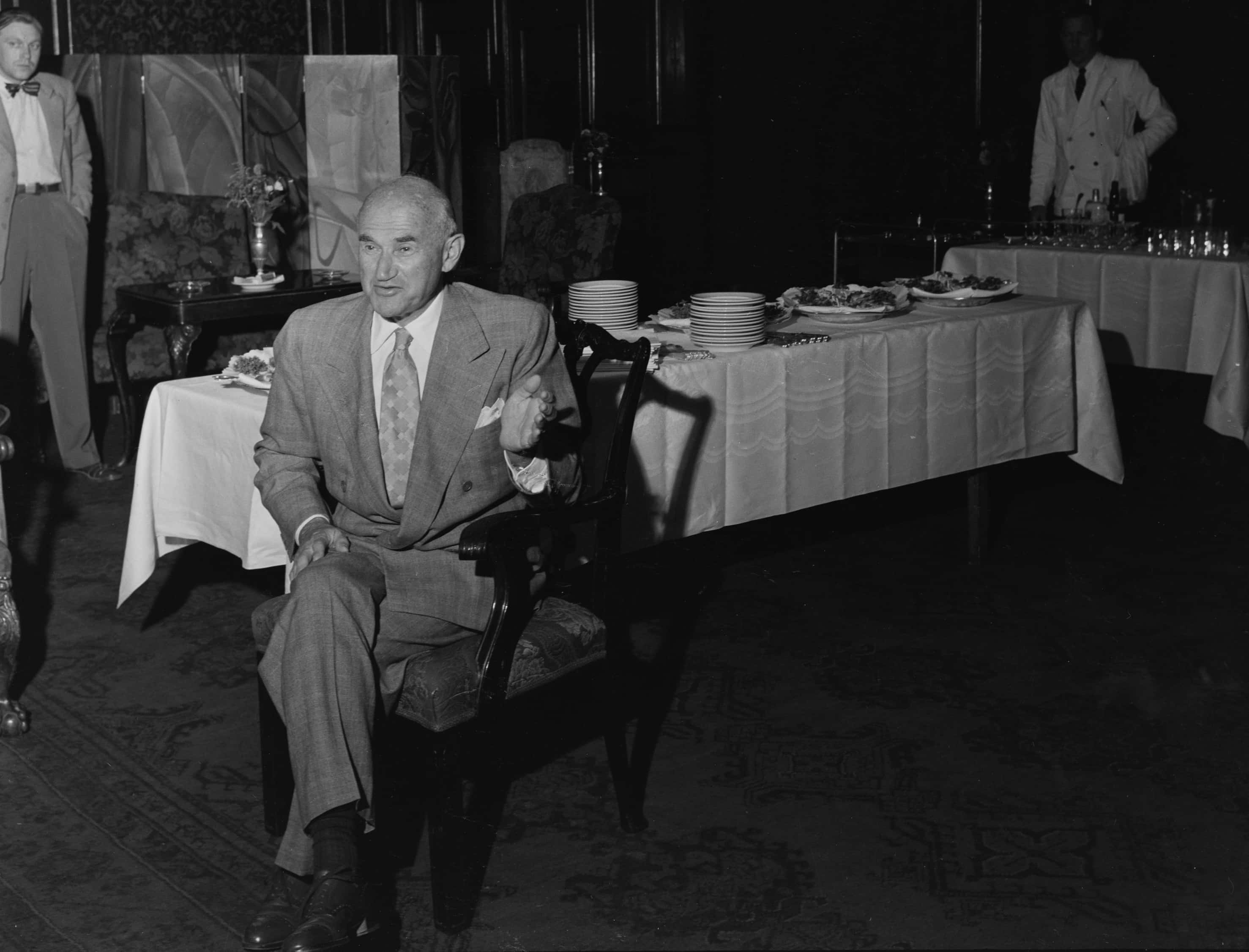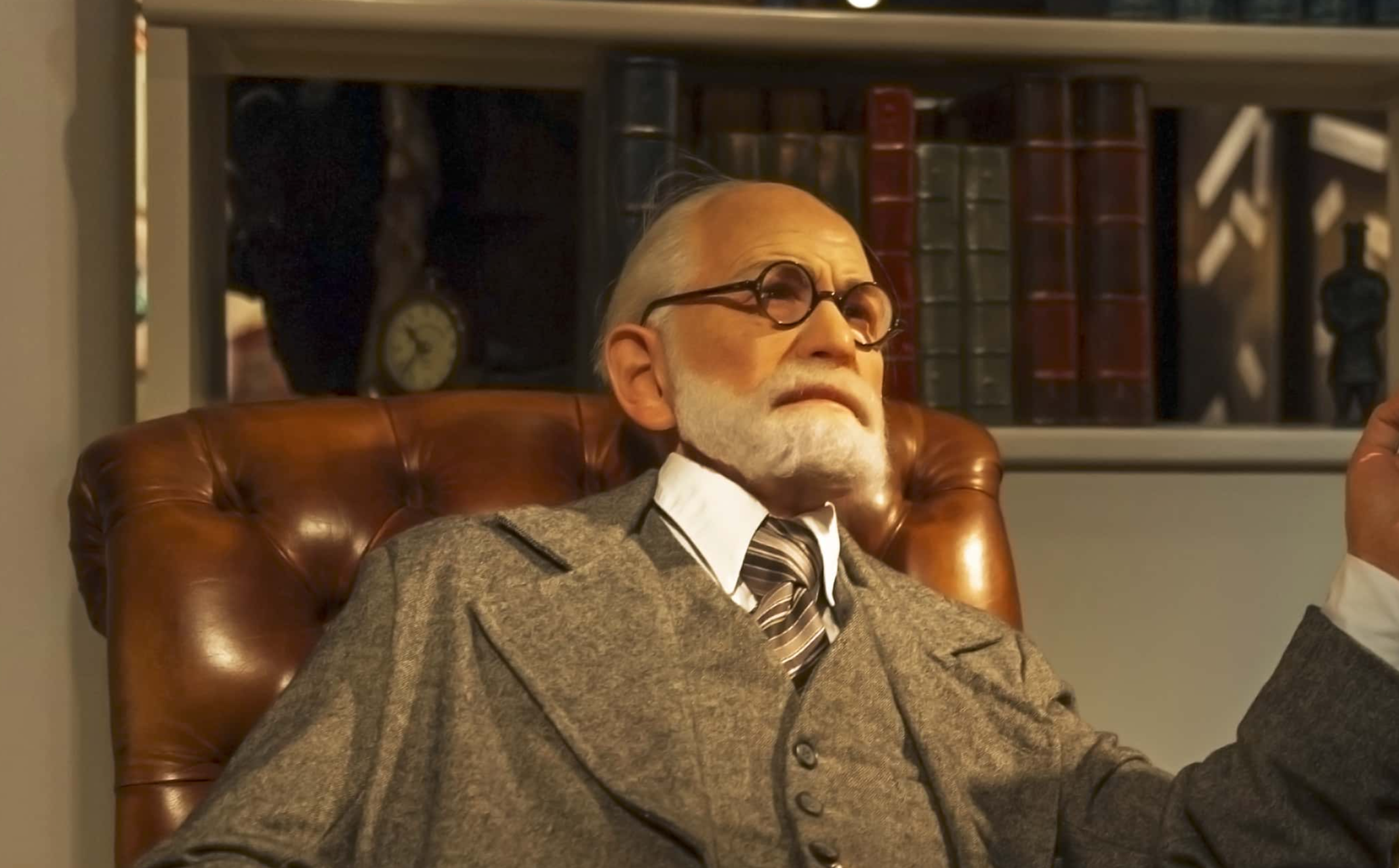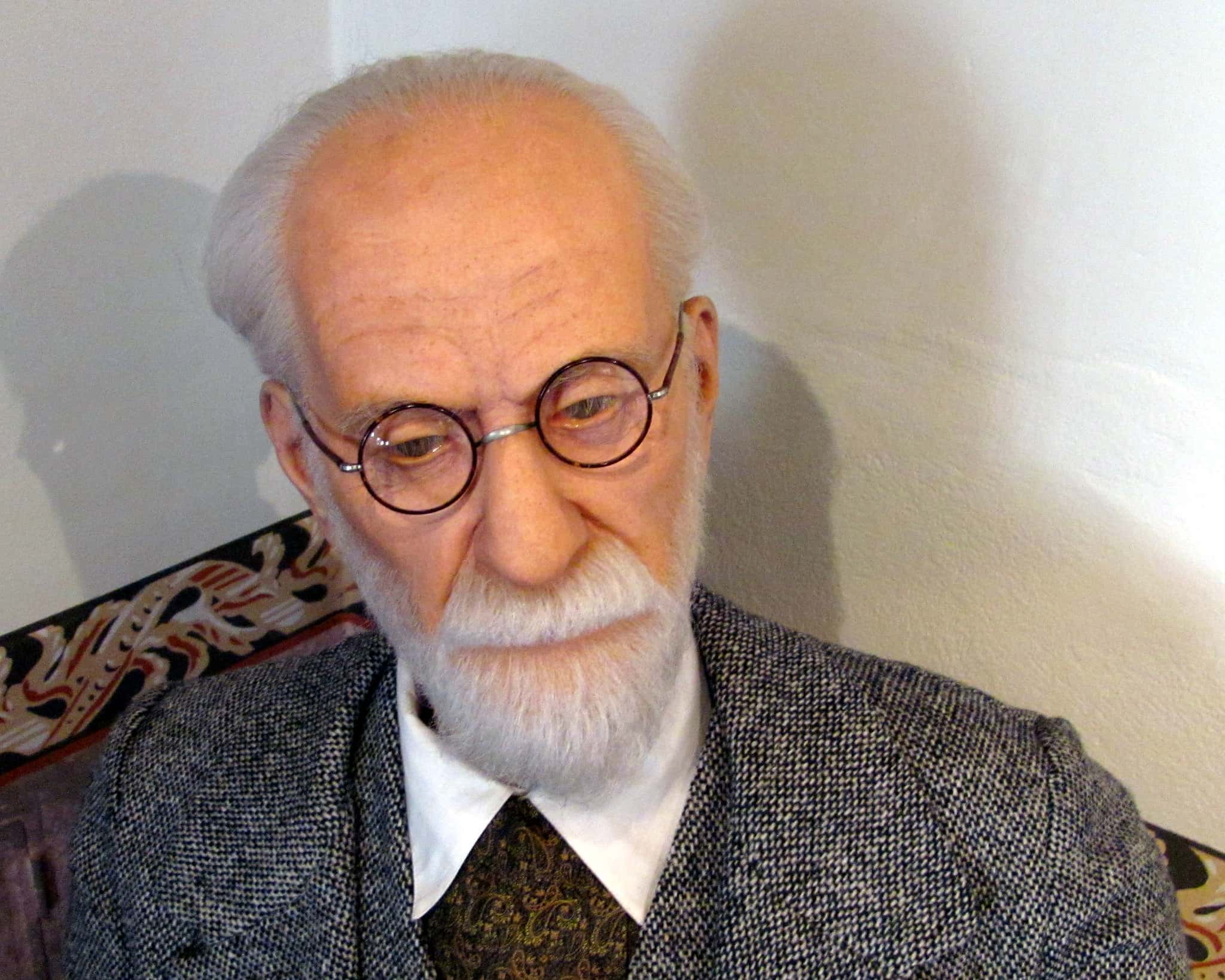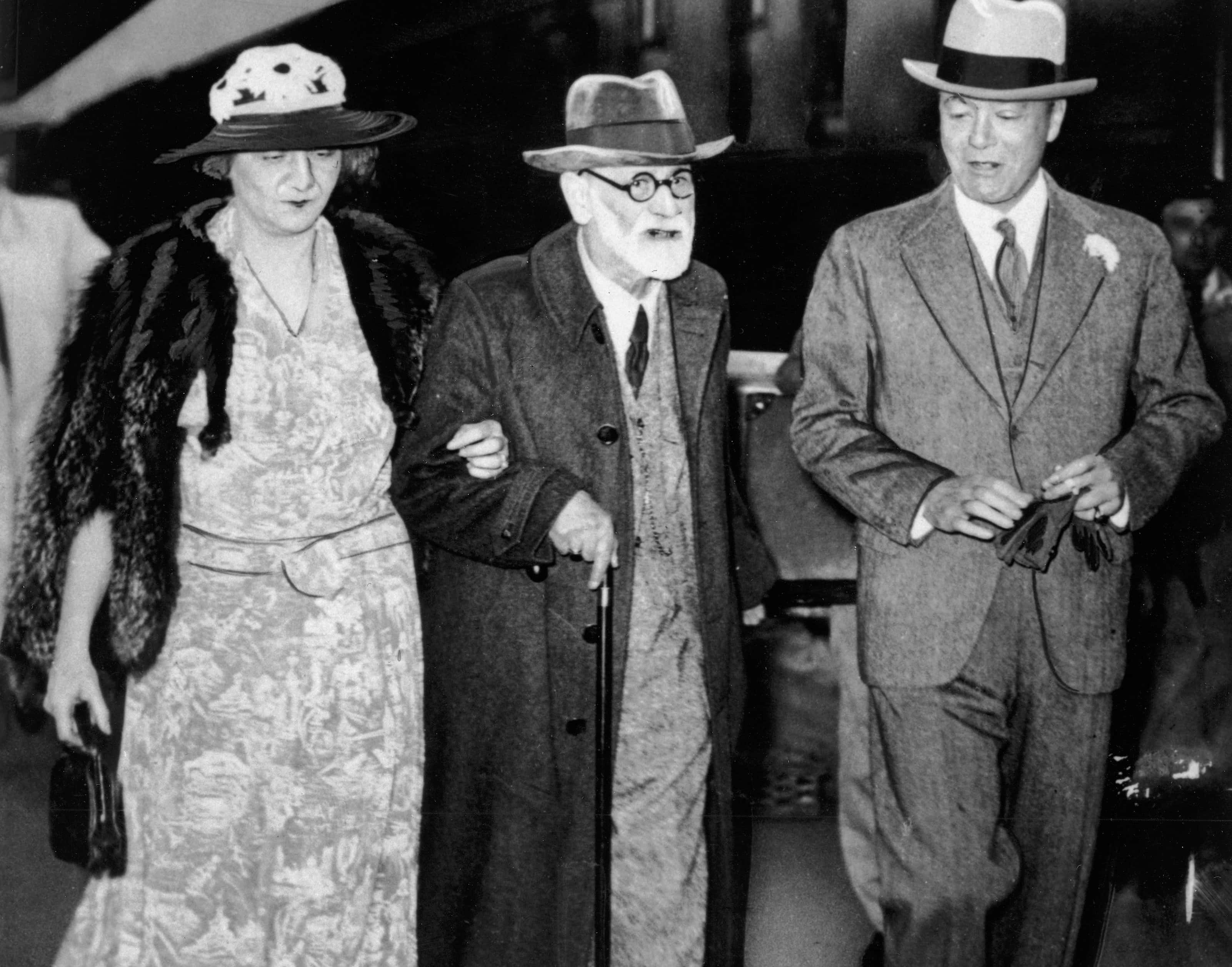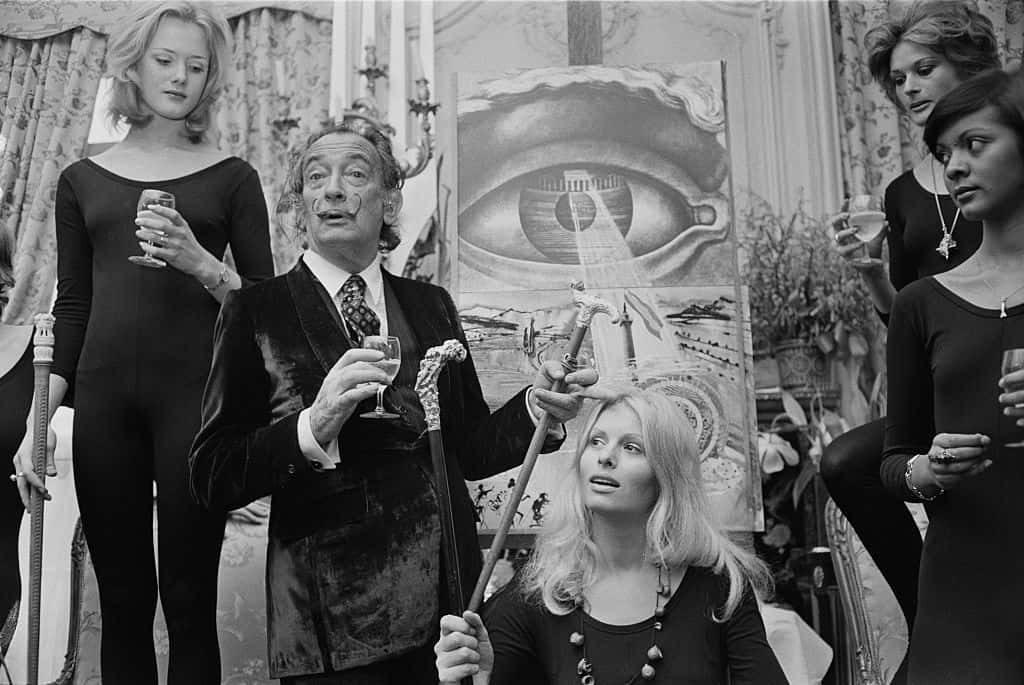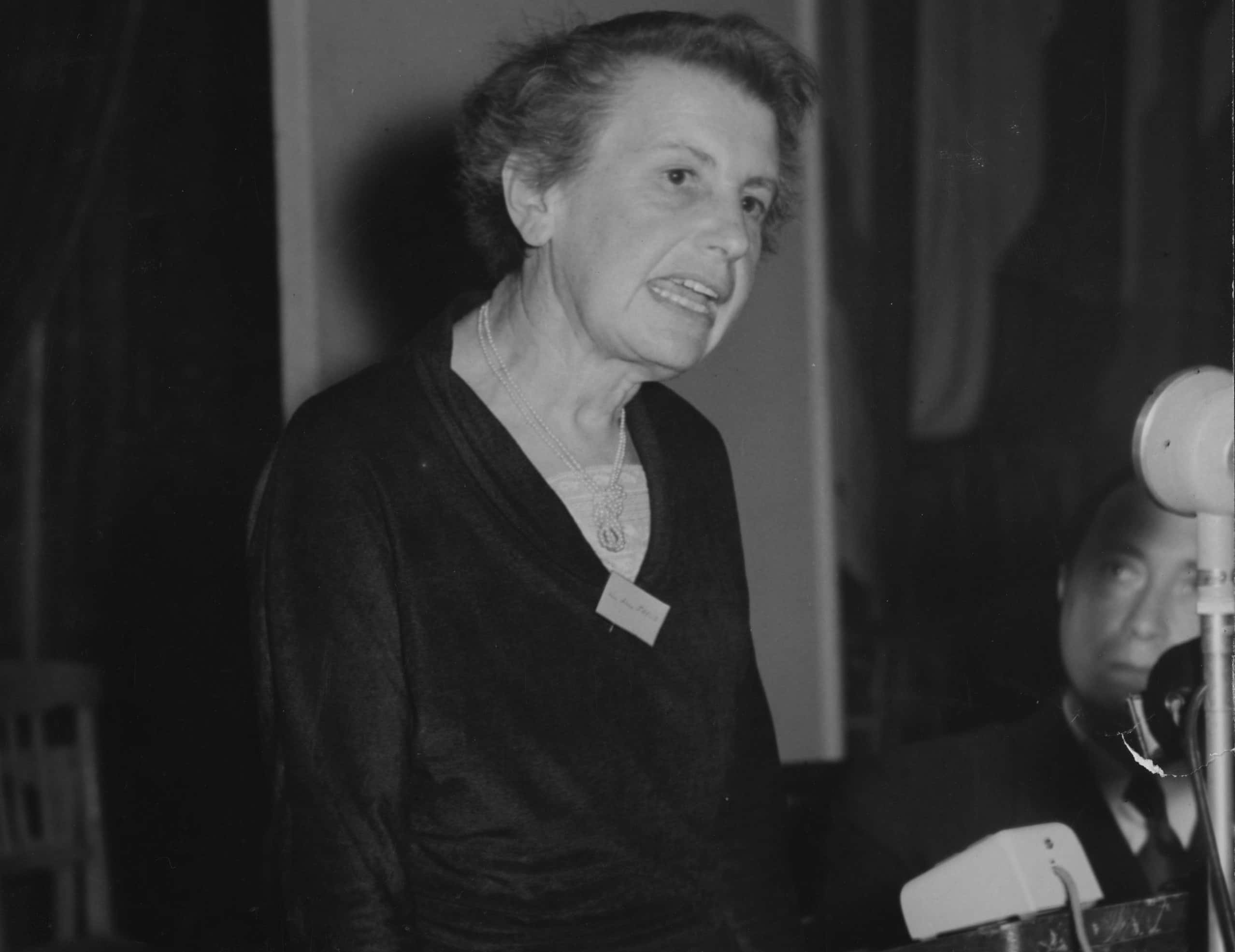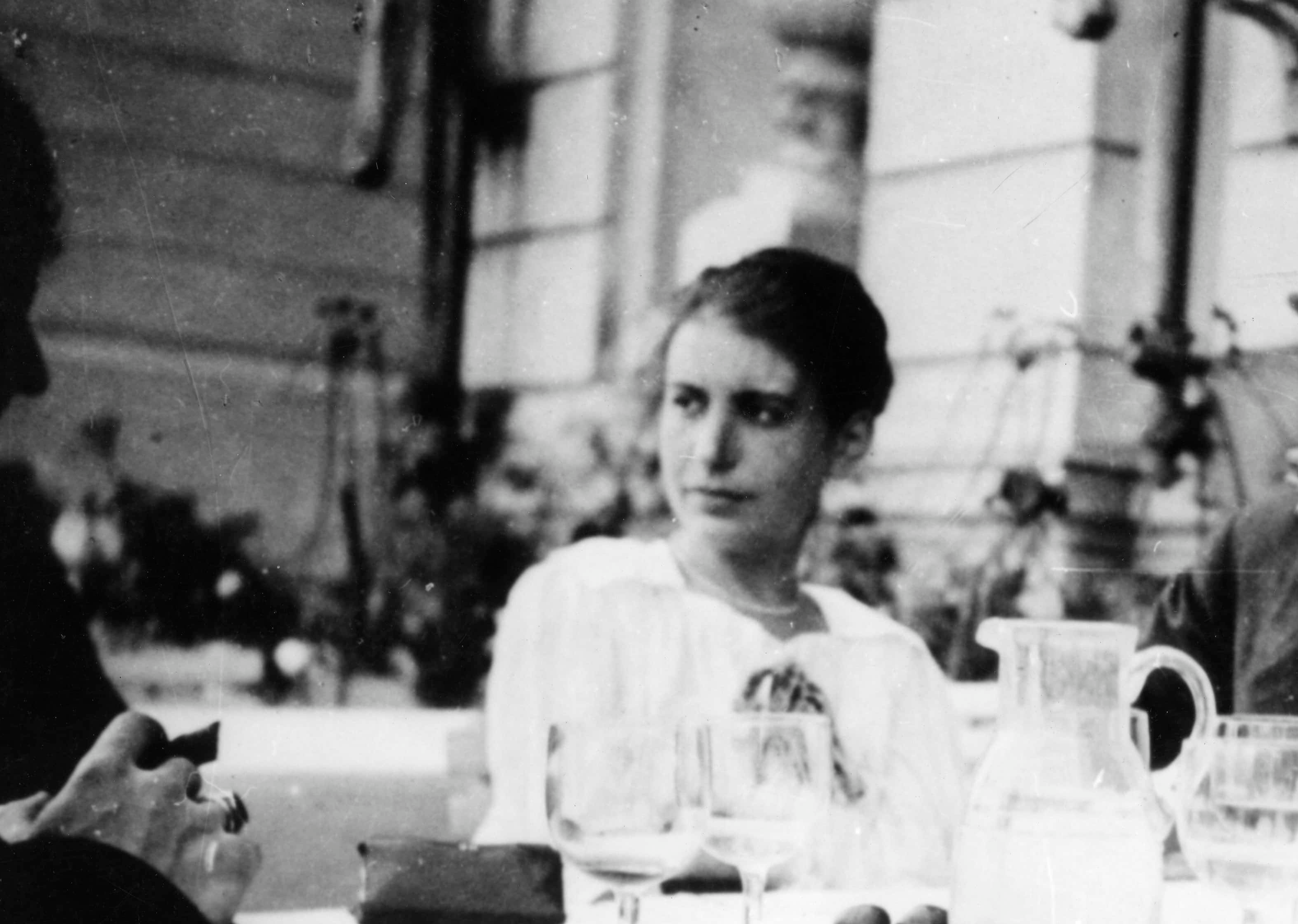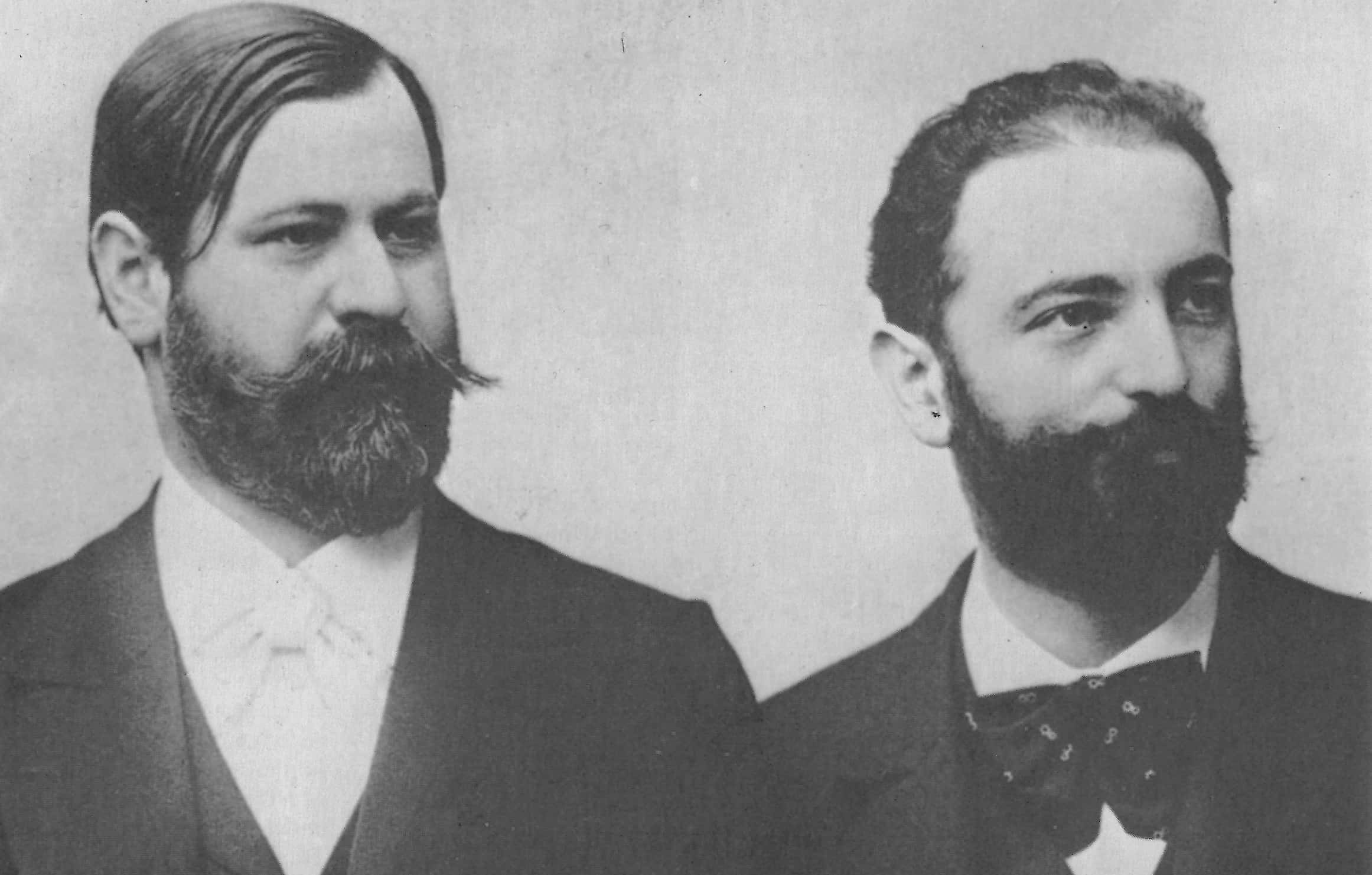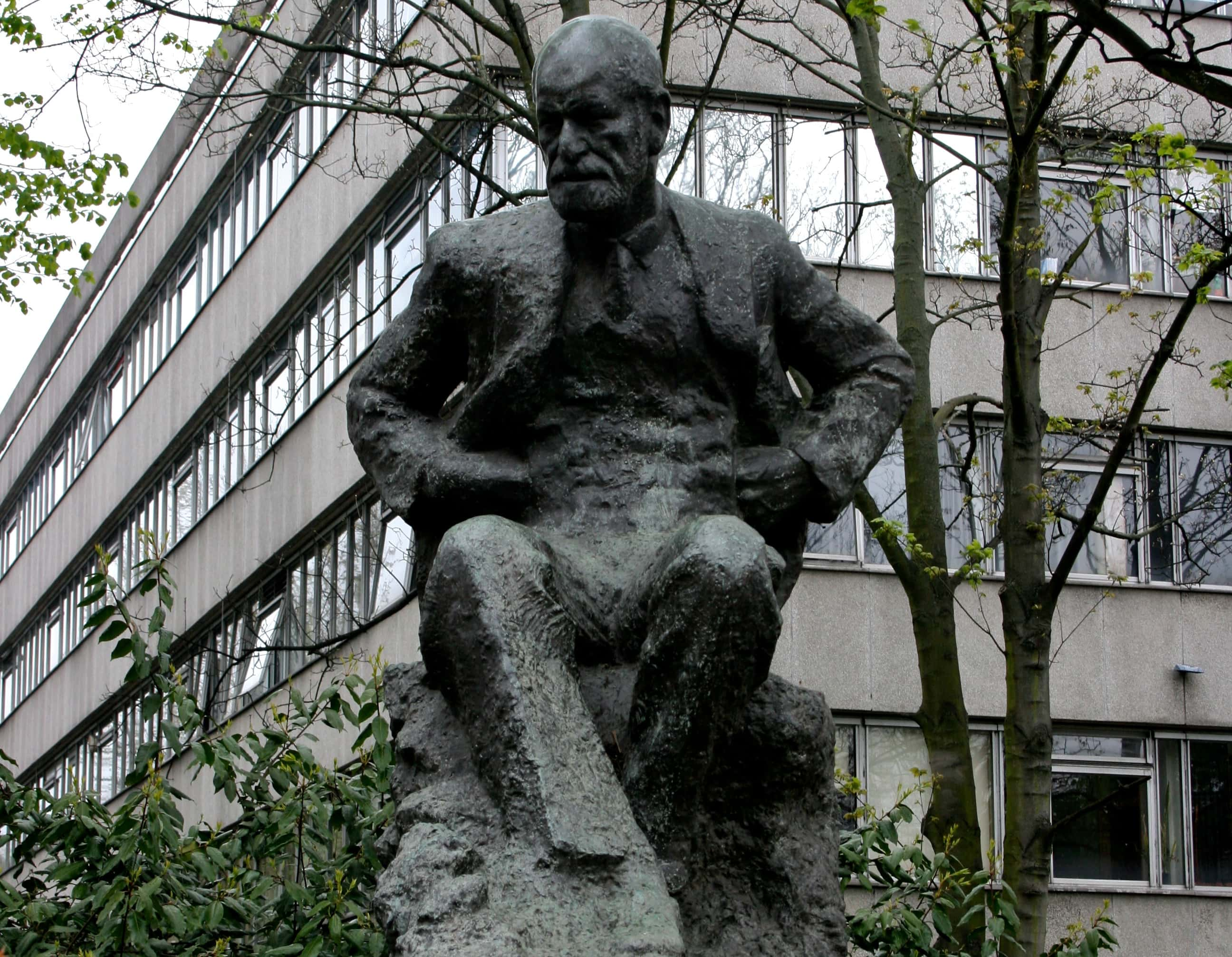If someone was asked to name a famous figure in psychology, most people would say “Sigmund Freud." Even though it’s been nearly a century since his passing, the psychoanalyst still looms large. Of course, anyone who spent their life studying people's darkest fears and dirtiest secrets is going to have a fascinating biography. Freud is no exception.
Sigmund Freud Facts
1. Birth of a Legend
Sigismund Schlomo Freud was born on May 6, 1856. He was the first born of eight—EIGHT!—children.
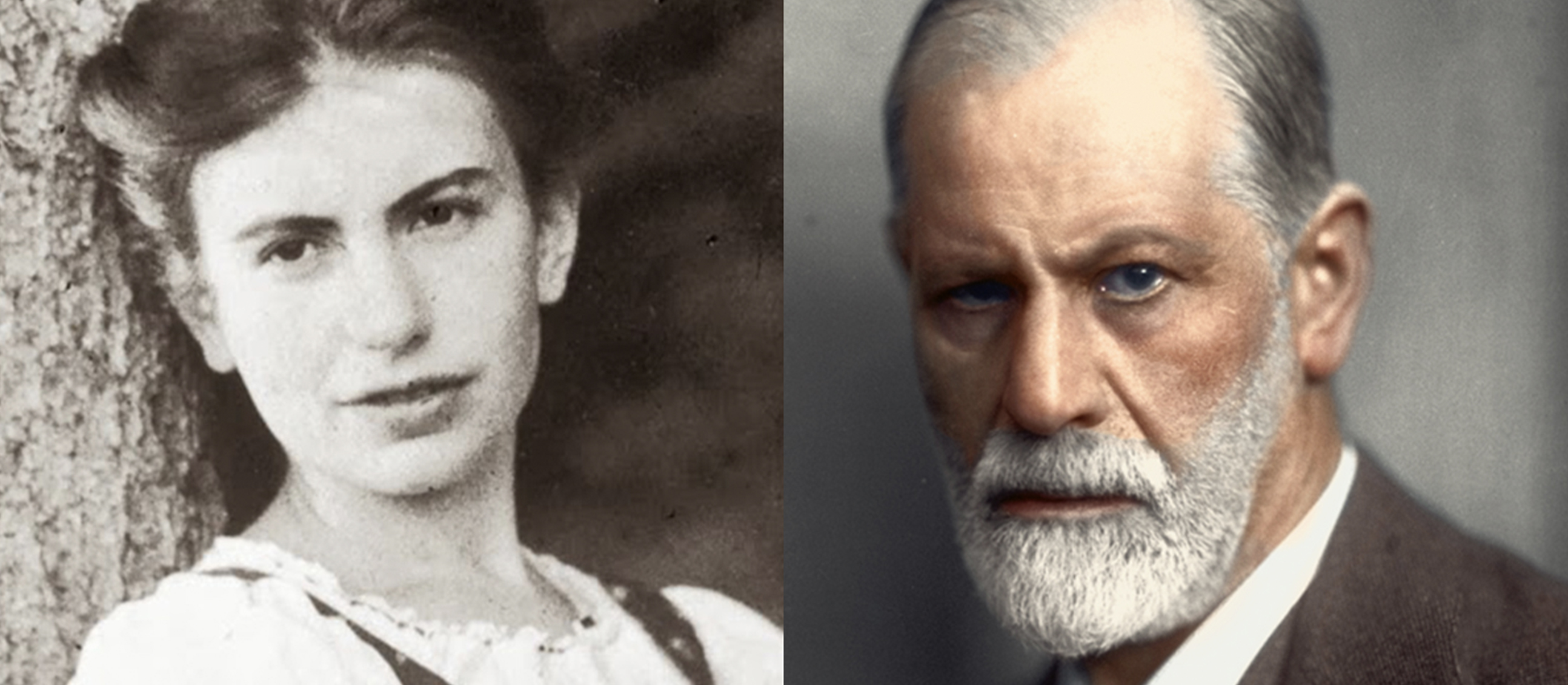
2. It’s a Sign!
When Freud was born, his parents noticed something strange. Their new baby had a caul, or a thin membrane covering his head. Though rare, cauls aren't very dangerous or difficult to remove. Even so, Freud's mother saw the mark as a glorious sign that her son was destined for greatness. Can't say she was wrong, either.
3. Good Boy
Freud owned a Chow-Chow pup named Jofi, and he often used him as a therapy dog for his patients.
4. Lasting Legacy
The psychoanalyst may still be famous today, but modern experts consider most of his theories a bunch of phooey—except for one big one. Freud advocated for the use of talk therapy, a practice that has endured across the evolution of psychology, psychotherapy, and various other related fields long after his passing. Take that, doubters.
 Freud (1962), Universal International Pictures
Freud (1962), Universal International Pictures
5. You Are Getting Very Sleepy
Sigmund Freud is actually the reason we associate therapy with lying on a couch. You see, when he started using hypnotism during his regular psychoanalytic sessions, he found it was much easier to "mesmerize" patients when they were lying down on a couch as opposed to sitting up in a chair. And thus, a cliché was born.
6. Sounds Like a New Complex
Freud had a conflicted relationship with his father, and there was one thing he never forgave him for. When a man insulted his father on the street, Freud was aghast to find that his patriarch did nothing. This passivity disturbed the psychoanalyst, and he apparently never forgave his father for the rest of his life.
7. Faced With Failure
Before getting into psychoanalysis, Freud was preoccupied with an entirely different topic. He studied zoology, and was specifically focused on finding the gonads of male eels. Uh, yes, really. Scientists hadn't found them yet, and Freud never did either. After hours of dissections, he was forced to admit that “All the eels I have cut open" were female.
8. Brain Power
Freud's studies of the human brain in university helped with the discovery of the neuron.
9. Handle Me at My Worst
In 1882, the young Freud encountered Martha Bernays, the daughter of a prominent Jewish family. They fell head over heels with each other, and the whopping 900 letters that Freud wrote to her during their four-year engagement are considered part of the "great love literature of the world." In one note, Freud pines, "I love you with a kind of passionate enchantment."
10. Anna NO
One of Freud's most famous patients was the so-called "Anna O.," who suffered from strange symptoms such as hallucinations and loss of consciousness. Though Freud officially diagnosed her with hysteria, modern experts have suggested a different possibility. According to them, she could have been suffering from a physical illness like meningitis or epilepsy.
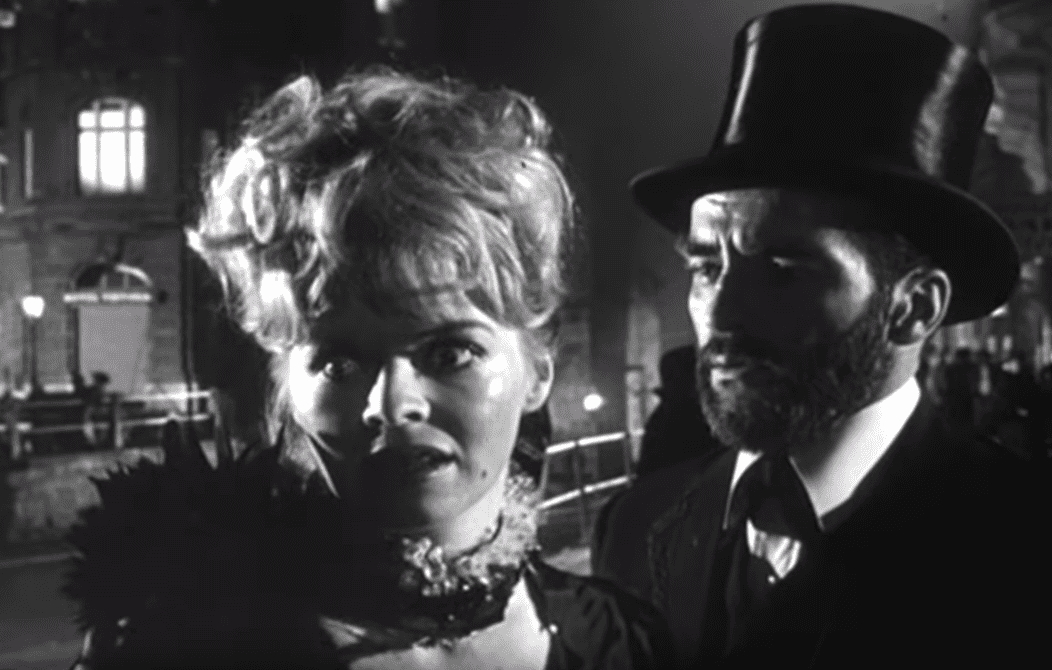 Freud (1962), Universal International Pictures
Freud (1962), Universal International Pictures
11. Have Me at My Best
Freud and Martha Bernay's marriage in 1886 was a great success, and they remained married until Freud's passing 53 years later. Even after having six children together, Bernay reflected that in all the time they were married, “there was not a single angry word between [them].” Wow, am I allowed to be jealous right now?
12. Pep in His Step
Freud was a huge user of the white stuff, and by that I mean begins with a "C" and ends with "ocaine." He even recommended it to friends.
 A Dangerous Method (2011), Recorded Picture Company
A Dangerous Method (2011), Recorded Picture Company
13. Just Replace “Hamlet” With “Oedipus”
Like a lot of people, one of Freud’s favorite writers was William Shakespeare—but his admiration went much further than light reading. Scholars have noted an significant overlap between Shakespeare’s plays and Freud’s own theories, and many believe Shakespeare’s writing helped shape Freud’s views on human psychology.
14. No Pressure!
Freud’s mother Amalia was utterly devoted to her baby boy. She favored him heavily over her other children and called him by the pet name "my golden Sigi." This may seem like an ideal upbringing, but the truth was much different. Freud confessed that the favortism gave him "this victor feeling" that left him disappointed in adult life.
 A Dangerous Method (2011), Recorded Picture Company
A Dangerous Method (2011), Recorded Picture Company
15. When Siggy Met Carl
Carl Jung was another heavy-hitter psychologist during Freud's time, and the two men got along like a house on fire. When they first met, they reportedly talked for 13 hours without stopping.
 A Dangerous Method (2011), Recorded Picture Company
A Dangerous Method (2011), Recorded Picture Company
16. Slow Start
As you can imagine, society didn't immediately accept Freud’s ideas and theories. To put it into perspective, Freud’s book The Interpretation of Dreams was published in 1899. This book first introduced the concept of the Oedipus complex as well as the unconscious mind, and Freud named it his “most significant work.”
Nonetheless, it sold less than 400 copies in the first six years of its release. Major ouch.
17. Ever the Discreet Doctor
Freud had some super VIP patients in his practice, among them Prince Pedro Augusto of Brazil, the composer Gustav Mahler, and Napoleon's great-granddaughter Princess Marie Bonaparte. To protect the identities of these illustrious and powerful people, Freud referred to them by pseudonyms even in his own personal notes.
18. Wait, What?
Freud may have been a genius, but he had a very dark side. Even during his heyday, people accused him of falsifying his findings to fit his own theories. So, if he wanted to prove his theory about the Oedipal complex (where a son wants to kill his father and sleep with his mother), he'd simply change his patients' testimonies.
19. U.S-Nay
Freud absolutely despised America, particularly what he saw as its informality and greed. He hated the way his American hosts called him by his first name and thought American society revolved too much around money. His hatred was so strong, he even refused to go there when he was seeking safe haven away from Germany. Now THAT is commitment.
20. For Love Nor Money
By 1925, Freud's theories were so widespread that many considered him to be the “greatest love specialist in the world.” Well, Hollywood took notice, and legendary producer Samuel Goldwyn offered him over a million dollars in today's currency to become a consultant for romantic film scripts. Freud turned him down flat.
21. Anyone Got a Light?
Freud suffered from an addictive personality. Beginning in his 20s, he started puffing daily. He eventually had as many as 20 Havanas a day.
22. Bad Habits
Unsurprisingly, all that indulging had serious consequences on Freud’s health. In 1923, doctors found a cancerous tumor inside his mouth. Freud underwent more than 30 surgeries, one of which included getting a prosthetic in his jaw. In all that time, across 16 years of surgeries, Freud never quit his habit.
23. And Featuring…
Freud has been on the big and small screen several times since his passing. The actors who have portrayed Freud include Viggo Mortensen and Montgomery Clift.
24. Hoarding the Past
Freud’s nostalgia for the past didn’t just manifest through his research and his theories; he also loved to collect artifacts from antiquity.
25. Ego Showdown
Though Carl Jung and Freud were fast friends, their relationship came to a heartbreaking end. Jung's ideas started splitting off from Freud's, creating personal and professional tension. In 1914, the battle reached such a fever pitch that Freud and his loyal followers closed rank, forcing Jung out of the International Psychoanalytical Association.
 A Dangerous Method (2011), Recorded Picture Company
A Dangerous Method (2011), Recorded Picture Company
26. Ceci N'est Pas Une Pipe
Freud probably never said "Sometimes a cigar is just a cigar." Still, the man loved a puff, and certainly loved turning everyday objects into sensual metaphors.
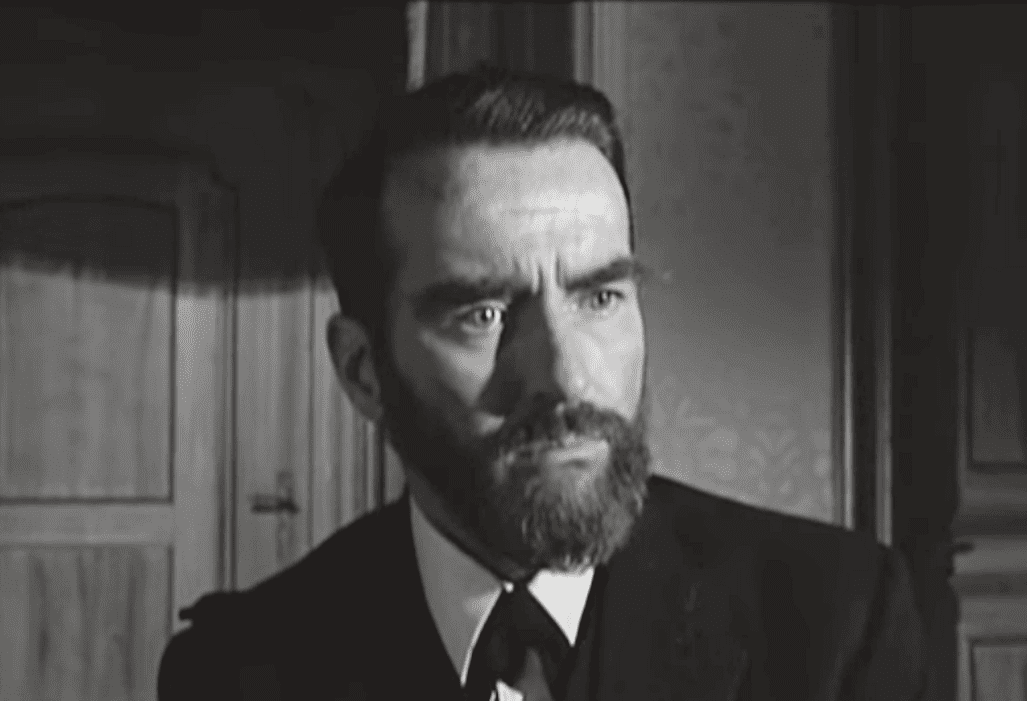 Freud (1962), Universal International Pictures
Freud (1962), Universal International Pictures
27. Unlucky Number 13
Freud was nominated for 13 Nobel Prizes, but never won any.
28. The Great Escape
When Germany took over Austria in the 1930s, Freud's life was in danger—and then it took an even darker turn. Men raided his apartment and detained his daughter Anna. Though Freud had been reluctant to escape Vienna, he knew he had no choice after this. With the help of Princess Marie Bonaparte, he obtained safe passage to London with his wife and Anna in tow.
29. Famous Friends
Such was Freud’s reputation that a number of prestigious figures welcomed him to London. This welcoming party included H.G. Wells, Virginia Woolf, and Salvador Dali.
30. Daddy Issues
When he was eight years old, Freud experienced one of his most lasting traumas. He acted out and intentionally peed in his parents' bedroom, leading his father to yell, “There will come nothing of this boy!” Freud confessed that the words left him scarred for life, and even said that all his accomplishments were to prove he could be somebody. That sure sounds very…oh, right.
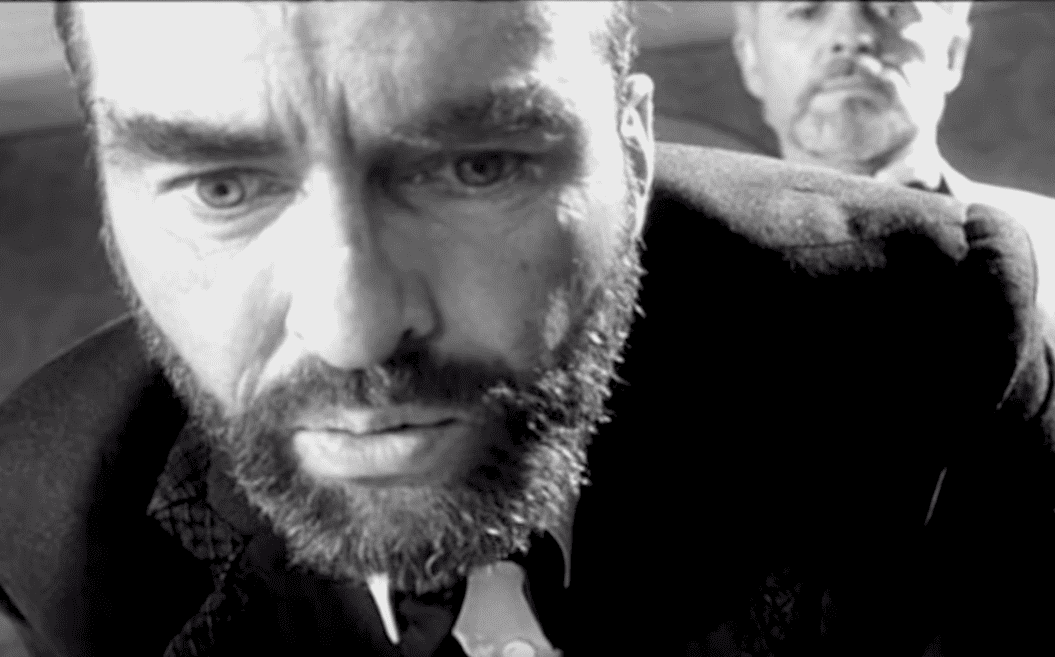 Freud (1962), Universal International Pictures
Freud (1962), Universal International Pictures
31. All About Me(n)
In his own lifetime, people thought Freud's ideas about women were controversial. One of his theories states that women are envious of boys' private junk, and even early 20th-century intellectuals were like, uh no.
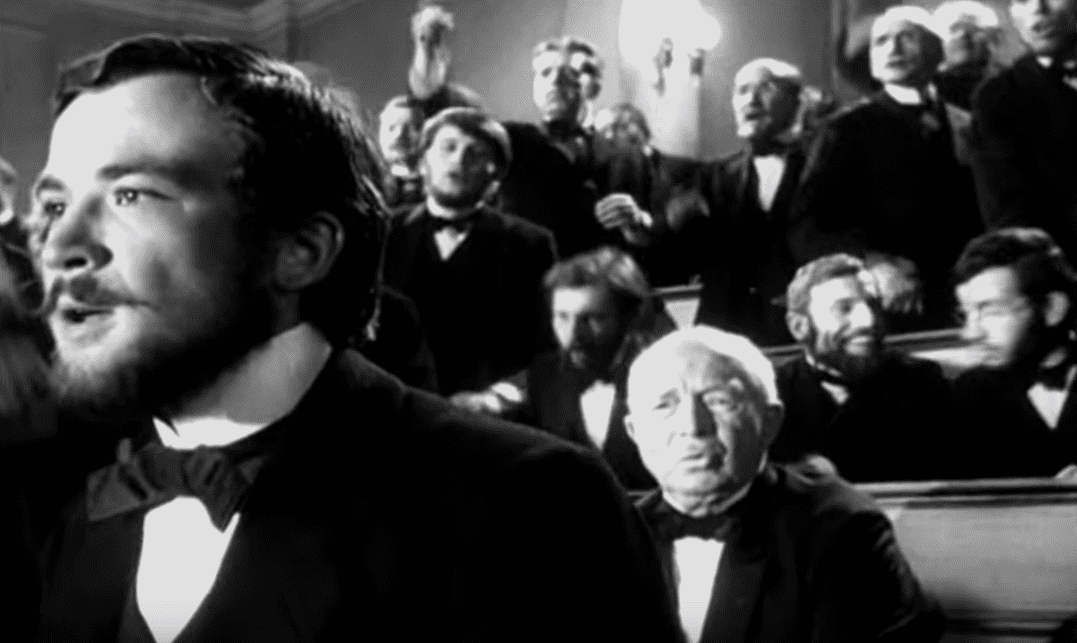 Freud (1962), Universal International Pictures
Freud (1962), Universal International Pictures
32. Black Humor
When Germany started burning books from Jewish intellectuals and other "undesirables," Freud's works were among the first to go. His steely response was unforgettable. “What progress we are making," Freud said wryly, "In the Middle Ages they would have burnt me; nowadays they are content with burning my books.”
33. Women on Top
Despite Freud’s controversial views on girls, he had a lot of help from women in his life. Bertha Pappenheim and Sabina Spielrein were both colleagues who inspired Freud to develop talk therapy and the death drive theory, respectively. After Freud’s passing, his daughter Anna not only ensured her father's legacy, she also became a renowned psychoanalyst herself.
34. A Great Loss
Though Freud escaped from Austria with his life, his family suffered a much more tragic fate. Despite attempts to get them to safety, all four of his sisters perished there.
35. So, Tell Me About Your Father
Freud was actually his own daughter Anna's therapist. Not exactly ethical, Sigmund.
36. Well, That’s…a Conclusion
One of Freud's most...interesting...cases was Emma Eckstein, who went to him complaining of restricted leg mobility and stomach pain. From this, Freud came to an utterly disturbing conclusion. He felt her tendency to self-pleasure was the culprit, and referred her to his colleague Wilhelm Fliess. This is where the story really gets weird.
37. Just the Ticket
At the time, both Fliess and Freud believed that the tissues in our noses were linked to our tissue down-under. I know, stay with me here. In order to "fix" Eckstein's libido and immobility, Fliess decided to operate on her nasal cavity. Except it all went horrifically wrong: Fliess botched the job and left Eckstein permanently disfigured.
38. That Could Have Gone Better…
There was apparently so much blood during Eckstein's operation that Freud fled the room in terror.
39. Wasn't Me
Shockingly, Freud never owned up to his part in Emma Eckstein's disastrous surgery, and even somehow blamed her profuse bleeding on her latent crush on him. No, really. He called them "wish-bleedings" and said they were symptoms of "an old wish to be loved in her illness." Meanwhile, Eckstein continued being his patient.
40. Two Girls, One Freud
In 1896, Freud’s sister-in-law Minna Bernays joined his household after her fiancé passed tragically. Totally above-board, right? Well, some people believe there's much more to the story.Freud developed a close relationship with Minna, which certain experts think turned into a steamy extramarital affair.
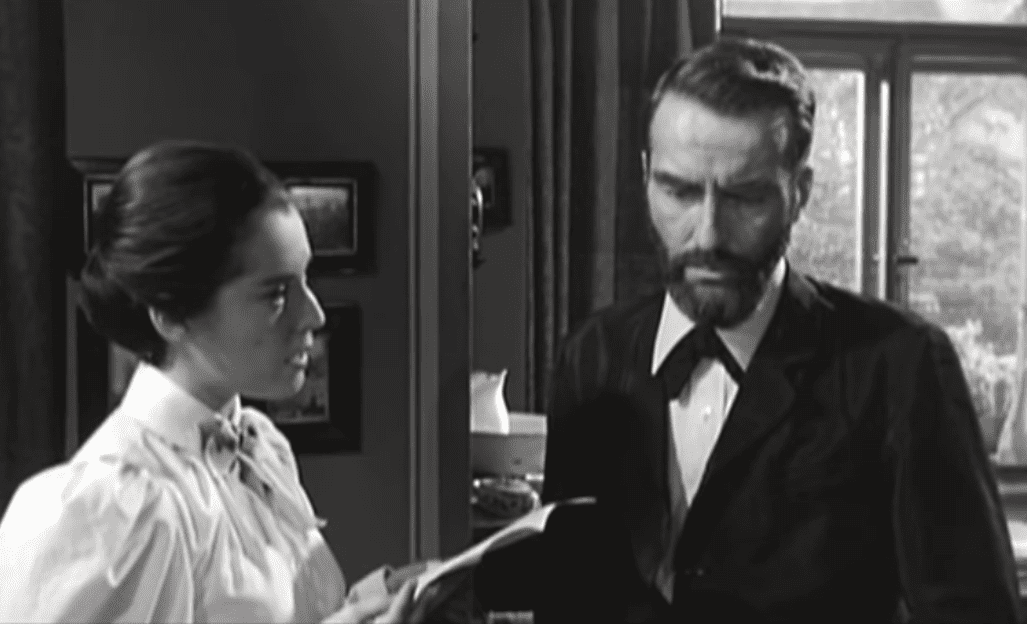 Freud (1962), Universal International Pictures
Freud (1962), Universal International Pictures
41. Take It As a Sign
Even though it's difficult to prove Freud's infidelity with Minna, historians believe they have a single ruinous clue. In 1898, Freud travelled with Minna to a hotel in Switzerland and signed the logbook under his name. To some experts, this is evidence that the two were in a tryst and looking for a place to hook up.
42. The Last Escape
By September 1939, Freud was in so much pain from the cancer in his jaw that he approached his long-time friend and colleague, Dr. Max Schur, and begged him to end it with morphine. Schur, or perhaps even a different doctor depending on what report you believe, complied. The great psychoanalyst passed on September 23, 1939, at the age of 83.


